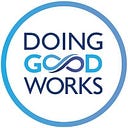The Public B Corp Dilemma: Why Not More?
Certified B Corporations Show It’s Possible to Value Profit, People, and the Planet
The number of Certified B Corporations has consistently risen over the years, but publicly traded B Corps are less common. Out of the more than 5,000 B Corps around the world, about 30 are currently publicly traded companies listed on the stock exchange.
It can be a bit of a head-scratcher as to why this is the case. After all, the reasons why a B Corp would be interested in going public are undoubtedly similar to those of a “traditional” business: raising money for future expansion, increasing brand awareness, and bringing in new customers. Going public has the potential for even greater benefits for a B Corp because its potential revenue growth could correlate with increasing its social and environmental impact.
In this article, we explore potential reasons why more B Corps don’t go public and whether this should change to help create a more equitable society. We will then discuss why it’s even rarer for a public company to later seek B Corp Certification. Are we likely to see a rise of NASDAQ corporations celebrating certification? Would this even be a good thing?

B Corps: Too Purposeful for Profit?
Some people believe that B Corps, which balance purpose and profit, may struggle to hit the growth figures of conventional companies. But researchers found the opposite to be true: On average, B Corps grow 14% year on year, with Edie finding that “leading B Corp FMCG brands [grew] on average 21% in 2017, compared to a national average of 3% across their respective sectors.” One explanation for this growth may come from people looking to align their spending with their values, as another report found that 66% of consumers reported that they are willing to spend more for goods and services from companies that are committed to making a positive social impact.
A good example of this growth is B Corp DGW Branded. The branded merchandise supplier achieved record growth of 41% from April 2021 to April 2022. This allowed it to expand to new locations and continue its social mission of supporting former foster youth in record numbers.
The Demands of Shareholders
People who are familiar with the B Corp community know the additional impact standards they must meet in the five stakeholder areas: workers, community, customers, environment, and governance. B Corps verify their positive social and environmental impact through the B Impact Assessment, letting consumers know they are using business as a force for good.
But an external organization that measures a B Corp purely by growth and profit margins may overlook the value of that social and environmental impact. Or is their room for shareholders to balance the typical measures — profit and growth— as well as the business responsibility of B Corps?
Let’s take a look at why B Corps going public is both a logical decision for investors and a sensible way for a B Corp to expand while maintaining its exemplary social impact.
Lemonade and Its B Corp Message: A B Corp Going Public
First, let’s remember that there are B Corps that have gone public, and publicly traded businesses that later decided to join the B Corp movement. Lemonade took the first route and decided to go public in 2020, having gained certification in 2016.
Since going public, the insurance revolutionary has seen its revenue continue to grow. Lemonade also received $480 million in funding since going public, fueling competition with the giants of the insurance industry.
Yet this hasn’t limited Lemonade’s social impact. In 2020, the year the insurance firm went public, the company was able to allocate $1.1 million to its customers’ chosen charities. In 2021, this leapt to $2.3 million.
More Than a Coincidence
While some may dismiss this as a public B Corp anomaly, Cambridge University Professor Christopher Marquis shares how investors are actively looking to invest in companies like B Corps with a public benefit corporation (PBC) legal structure. As he writes, “a compelling social mission … helps attract impact investment funds and other investors looking to identify companies for their portfolios that satisfy social impact investment criteria and meet the growing demand of their own investors.”
What’s more, Marquis explains that this isn’t a “heart over brain” investment: Analyst reactions were either neutral or favorable with no statements by analysts that were concerned a “PBC status carried more risks than traditional corporations.”

Public Companies Becoming B Corps
Allbirds, like Lemonade, is another public B Corp that has found success. The sustainable shoe brand is an example of B Corps capitalizing on an “uptick in demand, especially among younger shoppers, for products that are comfortable and also sustainably sourced.” The surge of conscientious consumers is in correlation to the swell of sustainable and trustworthy brands.
Another eye-catching possibility of this demand for a new type of business is witnessing established public limited companies joining the B Corp movement. In the race to attract these sustainable shoppers, empty slogans and greenwashing campaigns are no longer viable options to draw an informed public. As a way to differentiate themselves from their “all-talk” competitors, established and well-known businesses are joining the B Corp movement.
Recently, Kathmandu Clothing and VivoPower are examples of how a public company later joined the B Corp movement. Even with the extra ethical considerations B Corps have, the rapid growth of these companies is a testament to other publicly traded businesses that B Corp Certification can be a gain for the planet and the business.
‘B’ The Change You Want to See
The greater consumer pressure placed on public companies, the more compelled these companies will have to react to stay relevant — whether that’s becoming a B Corp, pledging 1% to the Planet, or signing on to other organizations looking to positively transform the purpose and impact of business.
It’s creating change from the bottom upward that will transition the economy from shareholder primacy to stakeholder capitalism. Alongside others in the B Corp community, let’s continue our mission to create a better world by creating value for people and the planet.
B The Change gathers and shares the voices from within the movement of people using business as a force for good and the community of Certified B Corporations. The opinions expressed do not necessarily reflect those of the nonprofit B Lab.


